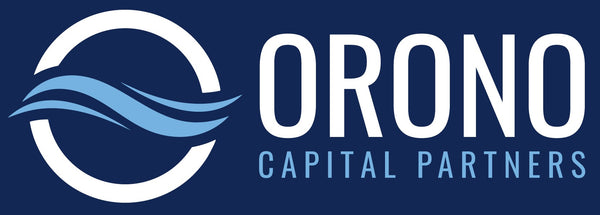
What to Look for in a Capital Provider
David ShulerThe independent sponsor asset class has surged in popularity over the last 10 years as capital providers of all types have developed familiarity with the model, and either experienced first-hand success or seen success achieved by others. Today there are literally thousands of potential capital providers.
With so many to choose from, where should an independent sponsor begin its outreach, and what qualities should they look for in a capital provider?
The most obvious answer is the party willing to provide the most attractive term sheet! But assuming terms are similar or you haven't even gotten to the term sheet stage, then an independent sponsor will want to consider a myriad of non-economic factors about who might make the best partner. We outline of a few of those below:
1) Investment timeline. Is this a situation in which you're looking for a 3-5 year hold period then move onto next deal, or do you want to be involved for the long run? Does your co-investor's time horizon match yours?
All funds that manage limited partner money (i.e. traditional PE, mezzanine or SBIC funds) have a finite fund life and at some point need liquidity to return to their investors, which generally comes in the form of selling the company. Whether those traditional funds are in Year 1 or Year 5 of the investment period of their fund can make a difference for how much longer they wish to remain involved. In contrast, some family offices have an extended timeframe and market themselves as having permanent capital.
2) Involvement level. Do you want an active co-investor, or work with somebody that lets you run with things and report back?
Traditional equity and hybrid SBIC funds tend to be more active, whereas traditional mezzanine and family offices tend to be in the latter category. All parties will want to attend the board meetings and have monthly update calls, and all parties will have similar governance rights, so it's really a question about frequency and direction of communication. Some sponsors are team-oriented and love collaboration, whereas others are self-starters and fine carrying the load.
3) Industry experience. How important is it to have a co-investor who has prior experience in that same industry?
Someone with experience in the same industry as your target (assuming there are no competitive concerns, of course) has potential to elevate the discussion during board meetings, might have contacts in the industry, such as buy-side advisors or recruitment firms, etc. This person(s) can offer you and your management team "smart capital" to help the investment outperform during the hold period.
Some industries are more logical to have prior experience than others. Some examples where expertise is valuable includes consumer products, healthcare, energy, and aerospace/defense. Other industries are segments are niche-y (i.e. mosquito spraying) where nobody would reasonably have experience! Furthermore, investors who lack a specific industry background should not be dismissed, per se, since smart people can learn as they go, but consider what the "education period" could be and will that introduce a hindrance to the deal or not.
A close second to industry experience is situational experience. Having a co-investor with a senior partner that can share decades of experience, from high-growth to turnarounds, through multiple recessions, is also very valuable. These investors have seen pro's and con's of leadership changes, facility moves, systems integrations, add-on acquisitions, and other strategic initiatives are not limited to industry.
4) Responsiveness. Are you able to reach your co-investment partner and/or receive a response in a reasonable timeframe?
Everybody is busy with deals, meetings, travel, family conflicts, etc. And everyone in the deal business gets inundated with calls and emails on a daily basis that must be managed and returned. But if your co-investment partners both require you to run things past them, and yet can never be reached (or they'll get back to you in 2 weeks), that is not helpful. So to know what the future might hold, consider what you learn about your potential new partner during the deal outreach period. This is akin to dating in that if someone isn't trying to impress you now, what makes you think they ever will! Now, responsiveness doesn't need to mean 24/7 and Sunday AM conference calls, but some simple acknowledgements and promises to follow-up. Does your contact person have to run everything past their partners, or do they speak with authority.
5. Personality fit. Life is short, so don't you want to enjoy the people you are around? Some value this perspective more than others of course. What is certain is that you are about to enter into a unique working relationship as independent sponsor and co-investor, and will be spending a lot of time with these people at airports, board rooms, on calls, at trade shows, etc. So consider whether the person is someone who gives you energy and support, or someone who takes energy and/or is difficult to be around. Consider whether this person's personality is shared by his/her colleagues as well. Deal teams change over time, so if the VP now steps into the deal lead do you have as much rapport with that person as well.
Mutual trust and respect can still occur in other cases, of course. Our point is an independent sponsor would be wise to consider how much to weigh this factor relative to others.
Independent sponsors have a lot to consider when evaluating their capital provider options for a transaction. For some it's all about the best economics, whereas others might strongly value one of the factors highlighted above. What is important is for a sponsor to consider all these factors as part of their own diligence checklist to help them determine who might be the best co-investment partner. If the data is still unclear, consider asking your partner for references of other sponsors, management teams, lenders or co-investors who they have previously worked with, to see if you can learn about past behavior, involvement, and more. People with confidence in their track record have no problem providing references.
And if the decisions remain unclear or even who to reach out to is daunting, consider giving Orono Capital Partners LLC a call to see how we can help you navigate the co-investor world and help find your best partner.
